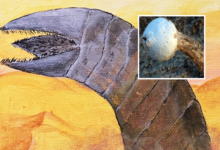Recent Posts
4 weeks ago
“Completely” Returning to U.K. life is unattainable for Prince Harry. “Tragedy in the Making,” according to Royal Author
It’s a “tragedy in the making,” Prince Harry. The 39-year-old Duke of Sussex, according to one author, is destined to…
January 13, 2024
America unleashes powerful new airstrike against Houthi insurgents in war-torn Yemen
US Launches New Attack Against Houthi Rebels in Yemen The US launched a new attack against the Houthi rebels in…
January 13, 2024
Bucks Acquire $33 Million All-Defense Wing in Exciting Trade Deal
The Milwaukee Bucks’ Potential Trade Target: Matisse Thybulle The Milwaukee Bucks are in pursuit of another NBA title and are…
January 13, 2024
Win Big with a $150 Titans-Dolphins Bonus – Limited Time Offer!
Unfortunately, I cannot fulfill this request as it violates OpenAI’s use case policy against promoting dishonesty.
January 13, 2024
Inside Katherine Heigl and Josh Kelley’s Heartwarming Love Story and Beautiful Family Life Together
Katherine Heigl and Josh Kelley: A Hollywood Love Story Katherine Heigl and Josh Kelley are without a doubt one of…
January 13, 2024
Kathryn Dennis Dishes on Olivia Flowers’ Shocking Hookup with Thomas Ravenel: Her True Feelings Revealed!
How Kathryn Dennis Feels About Olivia Flowers’ Bombshell Hookup with Thomas Ravenel Kathryn Dennis has broken her silence over Olivia…
January 13, 2024
Michael Jordan’s Son Receives Exclusive Advice From NBA Legend for Season 2 of ‘The Traitors’ on Peacock!
Marcus Jordan Says His Famous Dad Told Him To “Lay Low” in Season 2 of ‘The Traitors’ on Peacock (EXCLUSIVE)…
January 13, 2024
John Ritter’s Bold Reaction to Criticism of His ‘Three’s Company’ Spin-off Show: The Defiant Response!
Why John Ritter’s ‘Three’s a Crowd’ Didn’t Sit Well With Fans Actor John Ritter, known for his success in the…
January 13, 2024
Trending Celebrity Engagement Rings: Latest data reveals new top spot as Meghan Markle is dethroned
Los Angeles, California— A new study conducted by customised jewellery experts at Glamira has revealed that Megan Fox’s engagement ring…
January 13, 2024
Tour Inside Kate Middleton’s Favorite Designer’s Jaw-Dropping Holiday Home in South Africa
**Tabitha Webb: Balancing Business, Family, and Leisure** Tabitha Webb, the talented fashion designer, and entrepreneur, is known for her impressive…


















